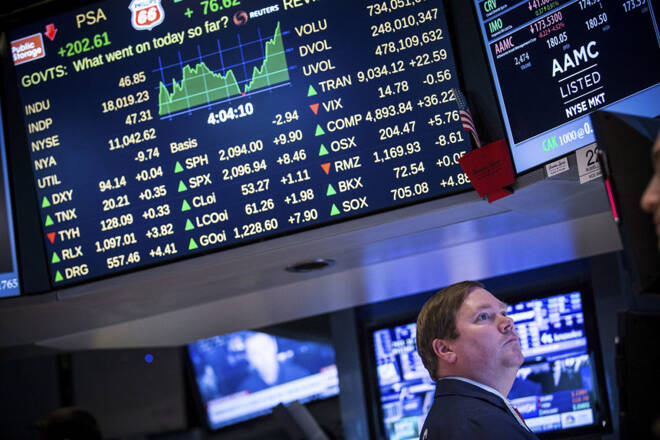Advertisement
Advertisement
Stocks Reverse as Exuberance Following Central Bank Activity Abates
By:
European stock markets are correcting some of Thursday’s gains, with Eurozone peripherals under-performing. Thursday’s exuberance following the BoJ and
European stock markets are correcting some of Thursday’s gains, with Eurozone peripherals under-performing. Thursday’s exuberance following the BoJ and Fed decision is abating but markets are settling into the weekend with a robust weekly gain as the risk of immediate tightening in the U.S. is removed while banks and insurers breathe a sigh of relief that banks seem weary of delving further into negative territory.
Gold prices have rallied nearly 2% during the week as the dollar lost ground and both the Fed and the Bank of Japan discussed focusing on inflation which should help the yellow metal gain traction. The DAX is down approximately .33% on the day, in early afternoon trade but still above 10600 and the FTSE 100 is down -0.34%. Mixed Eurozone PMI readings and an unexpected downward revision to France’s Q2 GDP number weighed on sentiment. U.S. stock futures are also down, following on from slight losses on most Asian markets, where the ASX was the notable outperformer. Equally oil prices are consolidating with WTI currently trading above 46 per barrel.
September EU PMI’s Were Weaker than Forecast
The Eurozone recovery is limping ahead and while the rebound in manufacturing is encouraging, France’s manufacturing sector remains in contraction territory and the drop in the German services reading is also worrying. So downside risks remain, although for now that sees the ECB sticking to its expansionary policy, rather than considering additional easing. The September EMU Composite PMI reading fell to 52.1 from 52.8, while the manufacturing PMI, which improved both in Germany and France, showed a rise to 52.6 from 51.7 for the overall Eurozone number.
German September PMIs were mixed. German PMIs continued to diverge in September, with the manufacturing reading managing to rebound to 54.3 from 53.6, but the services PMI falling back further to just 50.6, from 51.7 in the previous month. The marked dip in the services readings, which stands in sharp contrast to the French PMIs is somewhat worrying and likely to reflect not just the Brexit impact.
The French economy continues to struggle with growth. Q2 GDP was revised down to -0.1% quarter over quarter, from 0.0% quarter over quarter reported initially. The annual rate was revised down to 1.3% from 1.4%. The downward revision was unexpected, but after the stronger than expected first quarter, the fall back in Q2, was part of a general pattern across the Eurozone and the data are too back looking to really change the outlook, even if they will confirm again that France urgently needs to speed up the pace of structural reforms to lift the underlying growth potential.
French PMIs were much stronger than expected, with the manufacturing reading jumping to 49.5 from 48.3 and the services number jumping to 54.1 from 52.3. Better than expected national confidence numbers Thursday already signaled that there could be an upside surprise and after the weak August confidence indicators it seems readings are bouncing back in September.
About the Author
David Beckerauthor
David Becker focuses his attention on various consulting and portfolio management activities at Fortuity LLC, where he currently provides oversight for a multimillion-dollar portfolio consisting of commodities, debt, equities, real estate, and more.
Advertisement
